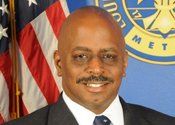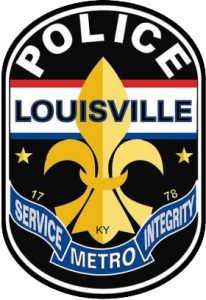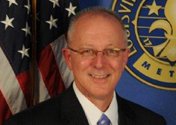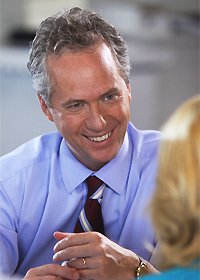
Photo: Louisville Metro Council
President David James thanked everyone on Monday for another successful “Back to School” effort to get needed school supplies for needy students in District 6 schools.
“With a new school year under way, we wanted to make sure these children received the things they need for learning for the new school year is to make sure school supplies are delivered to the schools in need,” said James.
James and the volunteers had collected donations of schools supplies from Walmart and Kosair Charities. Those donations were be sorted on Friday and then delivered to six schools on Monday, August 13th between 8:30am to 11:00am.
The schools are Wheatley, Frayser, McFerran, Cochran, Brandies, Englehard and Noe Middle School.
“Kosair is happy to work with President James and our other great partners and make sure children have the tools they need to start the school year on the right path. Whenever you help a child, you help secure a brighter future for all of us,” said Keith Inman, President of Kosair.
The donated supplies include:
Crayons
Notebooks
Pencil boxes and pouches
Backpacks
For more information about the Back to School giveaway and future events in District 6, contact the President’s office at 574-1106.

Credit: Louisville Metro Police
Representatives from the Louisville Metro Council’s Minority Caucus as well as Louisville Metro Police and Jefferson County Public Schools will participate in an event to demonstrate a new tool that has been purchased to help deter speeding and promote safety. A total of nine new SpeedAlert web-enabled radar display devices will be announced and demonstrated. Representatives from Louisville Metro Police as well as Jefferson County Schools will also use this event as an opportunity to remind citizens of the importance of observing proper safety precautions, especially when driving near a school.
When: 10:00 a.m. Monday, August 13
Who: Louisville Metro Councilmembers, Louisville Metro Police Department and Jefferson County Public Schools
Where: Bowen Elementary School, 1601 Roosevelt Avenue (Off LaGrange Road)
Additional Information: a SpeedAlert web-enabled radar display will be located in the front parking lot of Bowen Elementary. A Second SpeedAlert radar device will be located onsite for those persons wishing to get video of the machine in operation.
For additional information related to this release or the nine members of the Louisville Metro Council’s Minority Caucus, contact Chris Lewis at 574-1118 or chris.lewis@louisvilleky.gov.

Photo: Louisville Metro Council
Neighborhood residents in two Metro Council districts will decide how a portion of the city budget is spent in their districts.
Our Money, Our Voice is an initiative of the Metro Department of Public Health and Wellness’s Center for Health Equity and Metro Councilmen David James (District 6) and Brandon Coan (District 8). Residents of those council districts will decide how $150,000 ($75,000 in each district) will be spent.
Our Money, Our Voice is the name of Louisville’s participatory budgeting initiative. Originating in Porto Alegre, Brazil in 1989, participatory budgeting is a way for members of a community to work together to better meet their needs while having a direct say in government decisions. In the process, people often find new ways of interacting with government and with each other to create solutions for all. Participatory budgeting has been practiced in the United States since 2009 in such cities as Hartford, CT; Greensboro, NC; New York and Chicago.

Photo: Louisville Metro Council
Initial funding for the initiative is coming from $100,000 in capital infrastructure funds ($50,000 from each district) and $50,000 from the Mayor’s Healthy Hometown Movement. Additional funding is being sought from foundations and private sources. Community residents will decide how to spend the money for physical improvement projects in each of the districts.
“Our Money, Our Voice is a pilot project — a new way for citizens to engage with government and decide how tax dollars are spent,” said District 8 Metro Councilman Brandon Coan. “It’s giving people real power over real money to make the decisions that affect their lives.”
“Who knows best about the needs of the community than the people who live there?” said District 6 Councilman David James. “Nobody can make better decisions about what a neighborhood needs than the residents of that neighborhood.”
The participatory budgeting process begins with the establishment of a steering committee consisting of representatives from the participating council districts. The steering committee then connects with neighborhood residents to develop ideas and create proposals for projects to benefit the neighborhoods. Finally, the residents in the metro council districts vote on how the money will be distributed among projects.
“Projects like Our Money, Our Voice are intrinsic to the work of public health,” said Dr. Sarah Moyer, director of the Department of Public Health and Wellness and the city’s chief health strategist. “Our vision is a healthy Louisville where everyone and every community thrives. Our mission is to achieve health equity and to improve the health of the people of our city. The best way to build a thriving community is to include everyone in the decision-making process from the start and participatory budgeting is a means to make that happen.”
District 6 neighborhoods participating in Our Money, Our Voice include Algonquin, California, Limerick, Old Louisville, Park Hill, Russell (the section north of Broadway Ave., south of Plymouth St., west of 22nd St. and east of 26th St.), Taylor-Berry, University and Victory Park.
Participating District 8 neighborhoods include Belknap, Bonnycastle, Alta Vista, Cherokee Triangle, Deer Park, Gardiner Lane – Upper Highlands, Hawthorne, Hayfield Dundee – Upper Highlands, Highlands Douglass, Original Highlands, Seneca Vista and Tyler Park.
Participatory budgeting was identified as a project that the community wanted to pursue during the My Dream for Lou Policy Summit hosted by the Center for Health Equity in October 2016. To learn more about the participatory budgeting process, the Department of Public Health and Wellness invites you to the kick-off event at the Heuser Hearing Institute Hearing and Language Academy at 111 E. Kentucky St. on Wednesday August 29 at 6 p.m.
 2018’s second CycLOUvia, the popular event showcasing alternative transportation, is returning to Three Points—Germantown, Schnitzelburg, and Shelby Park—on Sunday, August 19, Mayor Fischer announced.
2018’s second CycLOUvia, the popular event showcasing alternative transportation, is returning to Three Points—Germantown, Schnitzelburg, and Shelby Park—on Sunday, August 19, Mayor Fischer announced.
To support and highlight the growing business activity on Logan Street, the route will stretch on Goss Avenue and Logan Street from Texas Avenue to Kentucky Street.
“Another CycLOUvia is another reason to enjoy exercise, alternative transportation and community,” Fischer said. “I encourage neighbors along this route to bring their bicycles, skateboards and walking shoes to Goss and Logan streets, participate in this event and support local businesses.”
Goss Avenue and Logan Street from Texas Avenue to Kentucky Street will be closed to vehicular traffic from 2-6 p.m. Many businesses along the corridor will be open and engaging participants, creating an atmosphere that is uniquely Louisville.
The return to Three Points marks the fourteenth CycLOUvia event, with other events taking place on Bardstown Road, West Broadway, and Frankfort Avenue.
CycLOUvia is Louisville’s opportunity to experience transportation in a unique atmosphere, by walking, cycling, skateboarding, or dancing in the street. Streets account for a massive amount of public land in all cities. CycLOUvia repurposes these public spaces by temporarily replacing traditional vehicular traffic with pedestrian traffic.
During CycLOUvia, streets become paved parks where people of all ages, abilities, and socio-economic backgrounds can come to improve their mental, physical, and emotional health.
Since 2012, CycLOUvia events have attracted tens of thousands of people to neighborhoods across the city. CycLOUvia promotes healthy lifestyles, alternative transportation, safety and economic development.
For more information, visit https://louisvilleky.gov/government/advanced-planning/cyclouvia
 Friends of Metro Animal Services (FOMAS), a non-profit organization, announced today the Board of Directors unanimously elected Susanna M. Westerfield as Executive Director, to spearhead fundraising efforts in support of Louisville Metro Animal Services and the much anticipated completion of a new, state-of-the-art shelter in 2019.
Friends of Metro Animal Services (FOMAS), a non-profit organization, announced today the Board of Directors unanimously elected Susanna M. Westerfield as Executive Director, to spearhead fundraising efforts in support of Louisville Metro Animal Services and the much anticipated completion of a new, state-of-the-art shelter in 2019.“The Board of Directors and LMAS are truly excited to bring Westerfield on board. Her experience, commitment to caring for homeless animals, and progressive vision made her the ideal choice for FOMAS and our community,” Amy Wisotsky, Chairman.
In addition to an extensive background in Business Development and Organizational Learning, Westerfield brings to the board her expertise in non-profit administration, organizational leadership and program development. Westerfield’s new role will also include working with the dedicated, compassionate staff at LMAS to expand community outreach in support of programs critical to caring for the thousands of animals which enter the shelter each year.
“I will help advance LMAS’ progress as the county’s largest and only open-admission animal shelter that provides a temporary home for more than 7,500 animals last year and reached No-Kill Status for the first time ever,” said Westerfield, executive director of FOMAS. “We can make a difference in the lives of those living in our community by providing a state-of-the-art location where healthy, adoptable pets reside waiting for adoption. There is nothing more fulfilling than helping people in our community experience the steadfast love and companionship of a pet.”
Westerfield assumed her role as Executive Director of the Board in April 2018. Westerfield holds an MS degree in Instructional Systems Technology from Indiana University, has served in several leadership roles as Pastoral Council Secretary, Board of Director of the Catholic Athletic Ministry, Hand-in-Hand Ministries and various time and talent activities within her children’s school and church, bringing to FOMAS a wealth of knowledge about boards, volunteerism, and stewardship.

Photo: Louisville Metro Council
Councilman Rick Blackwell announces the next “Coffee with your Councilman” is set for Saturday, August 11th. It is an opportunity for District 12 residents to meet with their Councilman.
It will take place at Sister Bean’s Coffee House, 5225 New Cut Road, beginning at 10:00am to 12:00 pm.
There is no formal program and no need to sign up, just stop by and talk with the Councilman about any issue or concern you may have for District 12 or Southwest Louisville.
For more information about this “Coffee with your Councilman,” contact Councilman Blackwell’s office at 574-1112.
 Mayor Greg Fischer announced today that the city plans to move a statue of Confederate officer and President of the Board of Park Commissioners John Breckinridge Castleman from the Cherokee Triangle neighborhood and the George Dennison Prentice statue from outside the Louisville Free Public Library.
Mayor Greg Fischer announced today that the city plans to move a statue of Confederate officer and President of the Board of Park Commissioners John Breckinridge Castleman from the Cherokee Triangle neighborhood and the George Dennison Prentice statue from outside the Louisville Free Public Library.
The Mayor’s decision comes after a review of recommendations by a Public Art and Monuments Advisory Committee that he appointed late last year to develop a guiding set of principles for evaluating existing and future public art and monuments in the city. Beginning in January, the committee held seven public meetings, gathering hundreds of comments from residents throughout the city before submitting their recommendations to the Mayor on June 30.
The Mayor’s announcement comes days before the one-year anniversary of the horrific display of hatred and bigotry that occurred in Charlottesville, Va., over plans to remove a Confederate statue there. Mayor Fischer said the anniversary is a reminder of the necessity for all citizens to look at our monuments and statues through the eyes of those who have historically been discriminated against.
“Our Public Art and Monuments committee worked very hard, in cooperation with citizens, to develop thoughtful principles to help ensure that our public art and monuments respect our history but reflect the values of today,” he said. “I support those principles, and I used the criteria laid out in their report to make this decision about the Castleman and Prentice statues.
“We all agree with the report’s finding that our city must not maintain statues that serve as validating symbols for racist or bigoted ideology – that’s why we relocated the Confederate statue near the University of Louisville two years ago,” the Mayor said.
“While Castleman was honored for contributions to the community, it cannot be ignored that he also fought to continue the horrific and brutal slavery of men, women and children; heralded that part of his life in his autobiography; and had his coffin draped with both a U.S. and Confederate flag,” he said. “And while Prentice was founder and long-time editor of the Louisville Journal newspaper, he used that platform to advocate an anti-Catholic, anti-immigrant message that led to the 1855 Bloody Monday riot where 22 people were killed.”
The Mayor said he understands that some view Castleman’s life as a story of redemption, given his civic contributions after the Civil War. And others have argued the statue should remain, perhaps with a marker noting Castleman’s complex history.
“But to make no decision and leave the statue in place, or attempt to ‘balance’ it somehow, is to rationalize the suffering still caused to people whose ancestors were bought, sold and bred like animals on a farm. That is the cold reality of the Confederate cause,” the Mayor said. “My threshold question was whether this statue would be appropriate in a predominately African American neighborhood. The answer obviously is no. It would be viewed as disrespectful of a historic and painful past.
“Moving these statues does not erase history. Moving these statues allows us to examine our history in a new context that more accurately reflects the reality of the day, a time when the moral deprivation of slavery is clear.”
Mayor Fischer said appropriate relocations will be explored; the city is, for example, in conversation with Cave Hill Cemetery about moving the statues to their family burial grounds there. There are legal and financial issues to address with any relocation, including, for Castleman, a review by the Cherokee Triangle Preservation District. If no other suitable sites are found, the statues will go into storage.
The goal is to have any issues resolved and the statues moved by the end of the year.
The Mayor thanked Public Art Administrator Sarah Lindgren, the Commission on Public Art, and the Public Art and Monuments committee members, as well as the hundreds of people who participated in public meetings throughout the city over the past year.
“This was a challenging, emotionally charged subject. But as I said when this process began, we can only be a city where all citizens can reach their full human potential if we face our big challenges head-on, and this includes the challenges of race and equity,” the Mayor said. “This process shows that Louisville has developed enough social muscle to have a deep, productive, and sometimes uncomfortable community conversation about these challenges.”
The Mayor echoed the committee’s conclusion in a letter sent to him with the report: “We urge our community to continue the work of open dialogue, not only about public art and monuments, but about all symbols of racism and discrimination and how we as a community can move forward to advance equity, inclusivity and healing.”
The committee’s report can be found at Louisville Metro Public Art’s webpage: https://louisvilleky.gov/government/public-art
 Weather
Weather Traffic
Traffic @LouisvilleDispatch
@LouisvilleDispatch @LouisvilleDisp
@LouisvilleDisp Subscribe
Subscribe